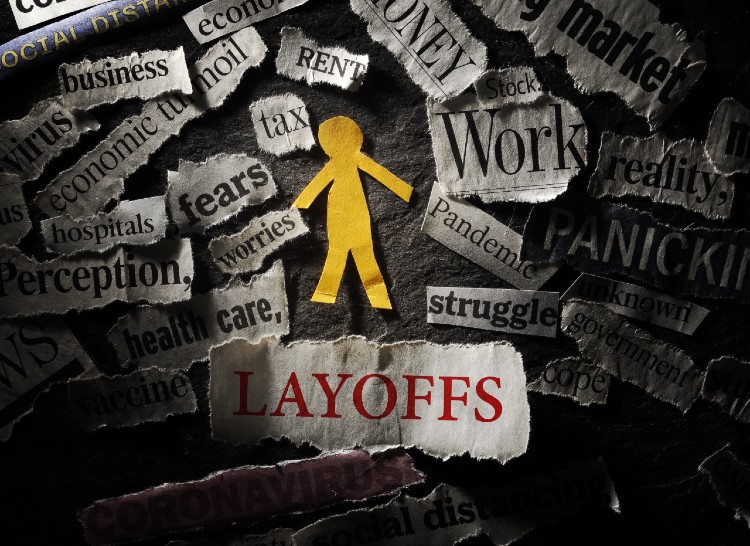 Long-range, COVID-19 may actually offer workforce expansion opportunities and strengthen local and regional communities. (Photo: Shutterstock)
Long-range, COVID-19 may actually offer workforce expansion opportunities and strengthen local and regional communities. (Photo: Shutterstock)
Can you ever be "all caught up" with the alarming increase in confirmed coronavirus cases across the United States and the globe? That's as difficult as predicting the future. But even without a crystal ball, we can clearly see that this crisis will significantly and perhaps permanently change the way we work and how.
Every day, companies and employees around the world are making unprecedented and difficult decisions. This is not business as usual. But, we will still succeed.
How?
Stay focused with a clear plan, but be nimble. Be direct and honest about what's achievable, adapt to the situation and innovate. Oh, and look long-term.
Related: Ways to stress test your business for coronavirus impact
Many companies are expanding telecommuting and remote working situations (many for the first time), relying on IT networks and tools such as Zoom and Slack. Our work processes and systems must flow into this new distributed work model.
While sales and tech fields seem to transition smoothly, other sectors could innovate. In health care, telehealth platforms such as Plushcare are becoming increasingly vital. They keep online healthcare workers free from direct contact with the virus in center visits. Mental health counselors are using platforms like Betterhelp for online client sessions.
For the foreseeable future, there will be little business travel, conferences or in-person team meetings.
Now is the perfect time for assessing how online platforms and telecommuting might be used to improve communications and increase engagement in a broad range of organization types. Harness them for training for company-wide tutorials.
It's critical employers take a long-range view on workforce development and employee retention. Many employers want to maintain their workforces, but face dwindling customers or forced closures with little liquidity to pay workers. If at all possible, employers should avoid mass layoffs and keep employees on payroll – it's their best insurance for sustainability. The US Small Business Administration website is an invaluable resource, offering COVID-19 related guidance, loan resources, and local assistance.
If a shutdown or decrease in operating hours is necessary, and the work can't be done from home, employers should consider incentivizing online education and skill-building for their staff during the downtime. If staff can build and strengthen skills during this time, it's a powerful tool for engagement, staff retention and morale.
Online learning is often practical, focused and concentrated on skills – it's meant to be actionable. Online courses allow anyone to reboot, boost or enhance their skill set – cheaply, easily, from anywhere and anytime.
For example, Khan Academy offers free courses in math, science and engineering, computing, economics, finance, plus a variety of test prep. Other options include massive open online courses (MOOCs) including the highest-profile EdX from many of the world's most prestigious universities. Microcredentials are big – check out the marketplace for them, credential engine.
Long-range, COVID-19 may actually offer workforce expansion opportunities. Local and regional communities will strengthen. There may be less globalized trade, though. We'll see a need for more modern apprenticeship programs, and they're an excellent fit for health and human services employment. Expect governments worldwide to recalibrate the role and scope of government services.
COVID-19 will be a boon for businesses offering technology and data-driven products and services in supply chain logistics, cloud IT, and automation, etc. Companies will seek to develop operating processes and systems that withstand future calamities.
Employers will be on the front foot by investing in their future and America's future. Give young people a go as apprentices through these challenging times.
The modern apprenticeship is a proven method to skill up your workforce. Start now investing in your talent pipeline in readiness for economic recovery.
For companies with apprentices, the message is clear: Stand firm. Do additional training. That way, you'll be in prime position to respond when the economy picks up. Look ahead. It will be a different business world – many businesses will need new or adapted skills.
All businesses are unique and will require customized adaptation. Senior roles take on even more significance as employees and teams across the country look to leadership for a sense of stability now. Smart employers will listen to management and staff about how to make remote working sustainable while building unity and a sense of purpose. It is imperative to remain honest, flexible and understanding. Employers and business leaders have the opportunity to create a more robust, better-prepared workforce when things return to normal.
And they will approach the current crisis with a long-range view.
Let's rise to the occasion. How will your business tap into workers as a community of learners for resilient and sustainable operations?
Nicholas Wyman is a workforce development and skills expert, author, speaker, and CEO of the Institute for Workplace Skills and Innovation (IWSI Consulting). Wyman is a leader in developing skills-building, mentorship and apprenticeship programs that close the gap between education and careers around the world. IWSI Consulting works with a range of companies, governments and philanthropic organizations all across the globe, including Siemens, Nissan, Ford, and Mercedes-Benz as well as the Commonwealth of Virginia, the United Kingdom and Australia.
Read more:







